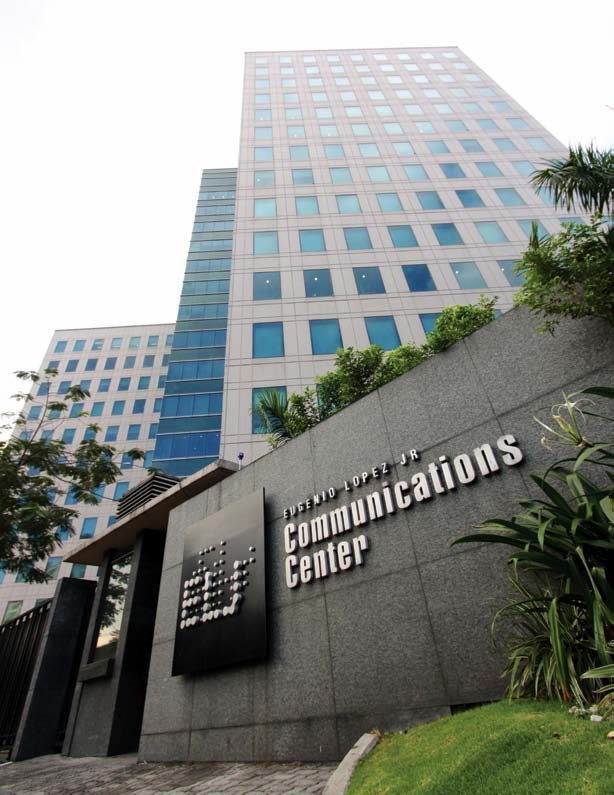News
Solon seeks probe vs. NTC, SolGen over ABS-CBN shutdown

FILE: ELJCC as seen from Eugenio Lopez Drive just in front the Pinoy Big Brother studios. (Photo By Hollyckuhno, CC BY 3.0)
MANILA – The chairman of the House Committee on Public Accounts is calling for a congressional probe and the filing of criminal cases against top officials of the National Telecommunications Commission (NTC) and Solicitor General Jose Calida over the shutdown of media giant ABS-CBN.
Anakalusugan Party-list Rep. Mike Defensor filed on Friday House Resolution 846, which seeks to investigate the alleged “conspiracy” between NTC commissioners and the Solicitor General to close down ABS-CBN, as it violates the Anti-Graft and Corrupt Practices Act, the Code of Conduct and Ethical Standards for Public Officials and Employees.
Defensor said the concerned public officials could also be held liable for perjury under Article 183 of the Revised Penal Code, especially after the NTC has committed while under oath to Congress that it will issue a provisional authority so the network could continue operations beyond its May 4 expiry.
He further noted that the orchestrated conduct of the NTC and the Solicitor General also “subverted” the constitutional authority of Congress to grant, deny, extend, revoke or modify broadcast franchises.
“Such contemptuous and criminal acts utterly disrespect not only the Committee on Legislative Franchises but the entire House of Representatives including the Senate, and such brazen and calculated conduct, reeking of an outright conspiracy, has led to the ambush of the House even taking the Senate by surprise,” he said.
“This unconstitutional meddling of the Solicitor General resulting in the NTC being unduly influenced and pressured to go against its categorical declarations under oath— supported by the clear legal opinion of the DOJ (Department of Justice) and the valid exercise of legislative authority by both the House of Representatives and the Senate— is an outright disgrace and an affront to the entire Congress and the DOJ,” he added.
Defensor said the resolution focuses not on the matter of the network’s franchise nor the freedom of the press but on the issue of lying and conspiracy in the middle of the coronavirus disease (Covid-19) crisis “where the dissemination of vital information to the public is paramount” to keep them safe and curb the adverse effects of the pandemic.
“Today we serve a fair warning to those public officials who think they can come to the House of the People to lie and deceive with impunity. Know this – we will not stand for it and your actions will have serious consequences. For when you lie to us, you lie to the whole nation.
When you try to deceive us, you are deceiving the Filipino people,” he said.
“This is a conspiracy of the lowest and most despicable kind – one that was perpetrated on the nation during a time of crisis. When Filipinos are dying and in desperate need of assistance,” he added.
Solicitor General Jose Calida on Wednesday defended the NTC’s action to issue a cease and desist order against the network after its legislative franchise lapsed on Monday.
“There is a judicial precedent on this power of the NTC. In a 2003 decision, the Supreme Court ruled that the issuance by the NTC of both a recall order and a cease and desist order against a broadcasting entity when it failed to renew its franchise was valid and compliant to administrative due process,” he added.
Calida noted that the exercise by the NTC of its regulatory power is in compliance with the rule of law.
“Nobody is sacred. Even a powerful and influential corporation must follow the law,” he said.
The Office of the Solicitor General (OSG) earlier cautioned NTC against granting provisional authorities (PAs) to operate broadcasting services, to ABS-CBN Corporation and its affiliate, ABS-CBN Convergence, Inc., despite the absence of franchises from Congress.
“The OSG has the duty to advise the NTC of what is legal or not. We will be abdicating our duty to the NTC if we don’t advise them of the legal consequences of their actions,” Calida said.
The Constitution requires a prior franchise from Congress before a broadcasting entity can operate in the country.
Without a renewal, the franchise expires by operation of law.
The franchise ceases to exist and the entity can no longer continue its operations as a public utility.





















